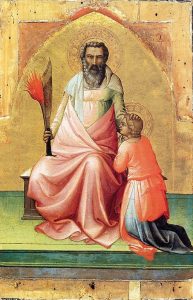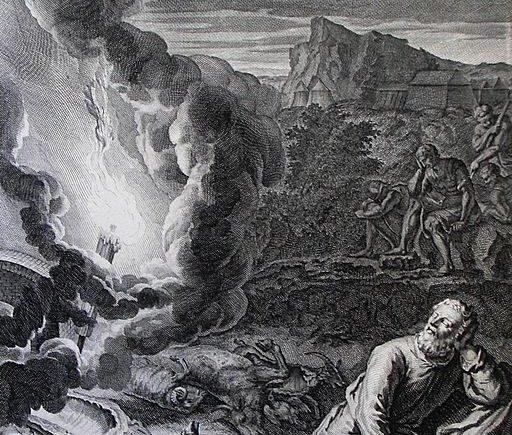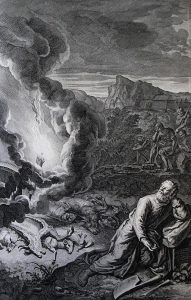by Lois Tverberg
O Lord GOD, what will You give me, since I am childless, and the heir of my house is Eliezer of Damascus?
– Genesis 15:2
 Abraham is known most for one quality – his faith in God, and his faithfulness to God. But if we look at the words that come out of his mouth through his life, we can see that his faith grows over time, as he sees that God is utterly reliable in keeping his promises.
Abraham is known most for one quality – his faith in God, and his faithfulness to God. But if we look at the words that come out of his mouth through his life, we can see that his faith grows over time, as he sees that God is utterly reliable in keeping his promises.
At the beginning, when God has delayed long on his promise to give him a son, Abram said,
O Lord GOD, what will You give me, since I am childless, and the heir of my house is Eliezer of Damascus? – Gen. 15:2
We can see his doubts after long years of waiting. He also expresses his doubts to God that he will possess the land:
O Lord GOD, how may I know that I will possess it? – Gen. 15:8
But still, he is faithful to God when God his promises seem far off, and finally God rewards him with a son. This greatly increases Abraham’s faith, so that he can say to Isaac on their way to Mt. Moriah,
God will provide for Himself the lamb for the burnt offering, my son. – Gen. 22:8.
Finally, the last words that are recorded from Abraham show that over the years he has become utterly convinced of God’s ability to provide. When a wife needs to be found for Isaac, he said to his servant:
The LORD, the God of heaven, who took me from my father’s house and from the land of my birth, and who spoke to me and who swore to me, saying, `To your descendants I will give this land,’ He will send His angel before you, and you will take a wife for my son from there. Gen. 23:7
Abraham began with a little faith in a God that he barely knew, and over his life, grew in faith as he saw God’s answers to his every need. So too, we will grow in confidence as we see how God’s love unfolds in our lives.
Photo: Web Gallery of Art



